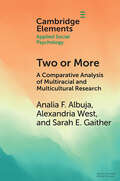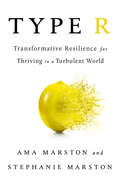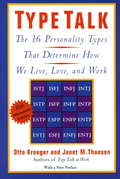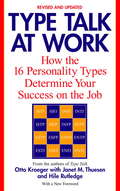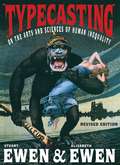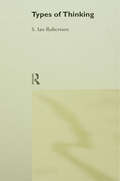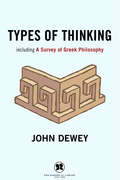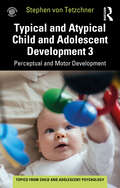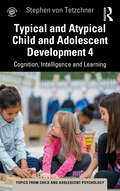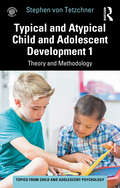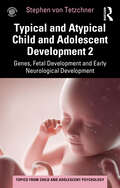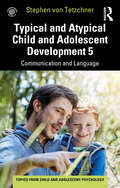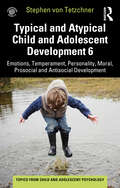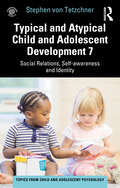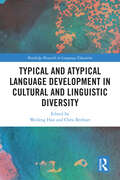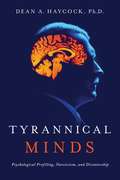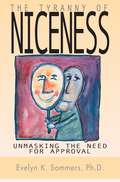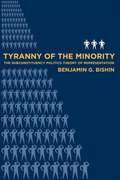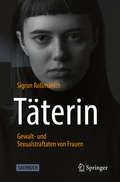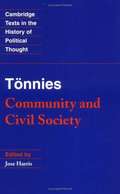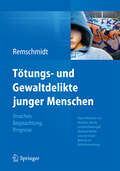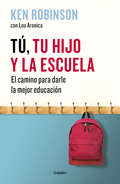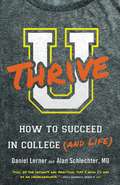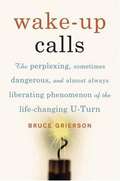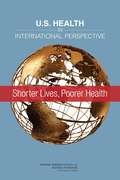- Table View
- List View
Two or More: A Comparative Analysis of Multiracial and Multicultural Research (Elements in Applied Social Psychology)
by Analia F. Albuja Alexandria West Sarah E. GaitherMost research has investigated Multiracial and Multicultural populations as separate topics, despite demographic and experiential overlap between these. This Element bridges that divide by reviewing and comparing Multiracial and Multicultural research to date-their origins, theoretical and methodological development, and key findings in identity negotiation, socialization, and discrimination-to identify points of synthesis and differentiation to guide future research. It highlights challenges researchers face when studying these populations because such research topics necessitate that one moves beyond previous frameworks and theories to grapple with identity as flexible, malleable, and influenced both by internal factors and external perceptions. The areas of overlap and difference are meaningful and illustrate the social constructive nature of race and culture, which is always in flux and being re-defined.
Type R: Transformative Resilience for Thriving in a Turbulent World
by Stephanie Marston Ama MarstonForget Type As and Bs. The future lies with Type Rs-the resilient individuals, leaders, businesses, families, and communities who turn challenges into opportunities in times of upheaval, crisis, and change.In Type R, Ama Marston and Stephanie Marston explore Transformative Resilience and the strategies of those who use difficult circumstances as catalysts for growth--springing forward rather than bouncing back during turbulent times.Here, Ama and Stephanie share inspiring stories of Type Rs thriving during unprecedented world events and increasing global pressures--from climate change to financial crises. They share the individual and collective triumphs of people coping with the stress of daily life and the challenges and disruptions that rattle all our lives at some point. And they draw upon research that spans the personal and the professional, the local and the global. Reaching across psychology, neuroscience, business, and politics, Type R demonstrates how we can use challenges to innovate, create new strengths, and grow.Type R also teaches leaders, businesses, and organizations how to cultivate the critical Type R Vision and Culture, which is essential for navigating and thriving in disruptive change. This thought-provoking book proves that there is much we can learn from those who use change, stress, and adversity as springboards to progress in a chaotic world.
Type Talk
by Otto Kroeger Janet M. ThuesenDetermine your personality using a scientifically validated method based on the work of C.G. Jung and gain insight into why others behave the way they do, and why you are the person you are.
Type Talk at Work (Revised)
by Otto Kroeger Janet M. Thuesen Hile RutledgeWhat's Your Type at Work? Are you one of those organized people who always complete your projects before they are due? Or do you put off getting the job done until the very last possible moment? Is your boss someone who readily lets you know how you are doing? Or does she always leave you unsure of precisely where you stand? Do you find that a few people on your team are incredibly creative but can never seem to get to a meeting on time? Do others require a specific agenda at the meeting in order to focus on the job at hand?Bestselling authors Otto Kroeger and Janet Thuesen make it easy to recognize your own type and those of your co-workers in Type Talk at Work, a revolutionary guide to understanding your workplace and thriving in it. fully revised and updated for its 10th anniversary, this popular classic now features a new chapter on leadership, showing you how to be more effective on the job. Get the most out of your employees--and employers--using the authors' renowned expertise on typology. With Type Talk at Work, you'll never look at the office the same way again!From the Trade Paperback edition.
Typecasting: On the Arts and Sciences of Human Inequality
by Stuart Ewen Elizabeth EwenTypecasting chronicles the emergence of the "science of first impression" and reveals how the work of its creators--early social scientists--continues to shape how we see the world and to inform our most fundamental and unconscious judgments of beauty, humanity, and degeneracy. In this groundbreaking exploration of the growth of stereotyping amidst the rise of modern society, authors Ewen & Ewen demonstrate "typecasting" as a persistent cultural practice. Drawing on fields as diverse as history, pop culture, racial science, and film, and including over one hundred images, many published here for the first time, the authors present a vivid portrait of stereotyping as it was forged by colonialism, industrialization, mass media, urban life, and the global economy.
Types of Thinking
by S. Ian RobertsonTypes of Thinking provides a basic grounding in the psychology of thinking for undergraduate students with little previous knowledge of cognitive psychology. This clear, well-structured overview explores the practical aspects and applications of everyday thinking, creative thinking, logical and scientific thinking, intelligent thinking and machine thinking. It also explores 'failures of thinking', the biases and shortcuts that sometimes lead our thinking astray.The author tackles big ideas in an accessible manner and in an entertaining style, ensuring that Types of Thinking will be attractive not only to students but also to teachers organising and planning courses, as well as the lay reader.
Types of Thinking: Including A Survey of Greek Philosophy
by John DeweyThe great 20th century philosopher delivered these lectures in China, which are available now to the public for the first time. The lectures show Dewey at the height of his powers, discussing and criticizing various schools of philosophy--including his own experimental position. For the first time Dewey's thinking crystallized into systematic form, thus the lectures are important not only philosophically but historically. In A Survey of Greek Philosophy Dewey gives a brief but comprehensive account of Greek philosophy from prehistory through Aristotle. Dewey's original English notes were lost, but the material in this book has been edited and translated from Chinese newspapers of the 1920s by Professor Robert W. Clopton and Dr. Tsuin-Chen Ou. Samuel Meyer has provided a lucid and thorough introduction. Not to be missed by anyone interested in the development of Dewey's thought and of 20th century philosophy. . . . the most complete presentation of Dewey's theory of the development of philosophy, in prose simpler and clearer than he himself ever provided . . . Types of Thinking deserves a place in every subject collection. --Library Journal
Typical and Atypical Child Development 3 Perceptual and Motor Development (Topics from Child and Adolescent Psychology)
by Stephen von TetzchnerThis concise guide offers an accessible introduction to perceptual development and motor development from infancy to adolescence. It integrates insights from typical and atypical development to reveal fundamental aspects of human growth and development, and common developmental disorders. The topic books in this series draw on international research in the field and are informed by biological, social and cultural perspectives, offering explanations of developmental phenomena with a focus on how children and adolescents at different ages actually think, feel and act. In this succinct volume, Stephen von Tetzchner covers key topics in perceptual development including: the theory of perceptual development, early and later development of vision, visual impairment, early perception of sound, the development of hearing throughout childhood and adolescence, the development of musical skills, hearing impairment, deafblindness, smell and taste. The section on motor development explores: theories of motor development, gross motor development, fine motor skills and atypical motor development. Together with a companion website that offers topic-based quizzes, lecturer PowerPoint slides and sample essay questions, Typical and Atypical Child and Adolescent Development 3: Perceptual and Motor Development is an essential text for all students of developmental psychology, as well as those working in the fields of child development, developmental disabilities and special education.
Typical and Atypical Child Development 4 Cognition, Intelligence and Learning (Topics from Child and Adolescent Psychology)
by Stephen von TetzchnerThis concise guide offers an accessible introduction to cognitive development in childhood and adolescence. It integrates insights from typical and atypical development to reveal fundamental aspects of human growth and development, and common developmental disorders. The topic books in this series draw on international research in the field and are informed by biological, social and cultural perspectives, offering explanations of developmental phenomena with a focus on how children and adolescents at different ages actually think, feel and act. In this volume, Stephen von Tetzchner explains key topics including: theories of cognitive development; attention, memory and executive function; conceptual development and reasoning, theory of mind; intelligence; and learning and instruction. Together with a companion website that offers topic-based quizzes, lecturer PowerPoint slides and sample essay questions, Typical and Atypical Child and Adolescent Development 4: Cognition, Intelligence and Learning is an essential text for all students of developmental psychology, as well as those working in the fields of child development, developmental disabilities and special education. The content of this topic book is taken from Stephen von Tetzchner’s core textbook Child and Adolescent Psychology: Typical and Atypical Development. The comprehensive volume offers a complete overview of child and adolescent development – for more information visit www.routledge.com/9781138823396
Typical and Atypical Child and Adolescent Development 1 Theory and Methodology (Topics from Child and Adolescent Psychology)
by Stephen von TetzchnerThis concise guide offers an accessible introduction to the key theoretical perspectives and methodologies in developmental psychology. It integrates insights from typical and atypical development to reveal fundamental aspects of human growth and development, and common developmental disorders. The topic books in this series draw on international research in the field and are informed by biological, social and cultural perspectives, offering explanations of developmental phenomena with a focus on how children and adolescents at different ages actually think, feel and act. In this succinct volume, Stephen von Tetzchner outlines the main theoretical perspectives including psychodynamic psychology, behaviorism, logical constructivism, social constructivism, evolutionary psychology, ethological psychology, ecological psychology, information processing and critical developmental psychology. He provides a guide to methods of gaining knowledge about children and introduces child and adolescent disorders. Together with a companion website that offers topic-based quizzes, lecturer PowerPoint slides and sample essay questions, Typical and Atypical Child and Adolescent Development 1: Theory and Methodology is an essential text for all students of developmental psychology, as well as those working in the fields of child development, developmental disabilities and special education. The content of this topic book is taken from Stephen von Tetzchner’s core textbook Child and Adolescent Psychology: Typical and Atypical Development. The comprehensive volume offers a complete overview of child and adolescent development. For more information visit www.routledge.com/9781138823396
Typical and Atypical Child and Adolescent Development 2 Genes, Fetal Development and Early Neurological Development (Topics from Child and Adolescent Psychology)
by Stephen von TetzchnerThis concise guide offers an accessible introduction to genes, fetal development and early brain development. It integrates insights from typical and atypical development to reveal fundamental aspects of human growth and development, and common developmental disorders. The topic books in this series draw on international research in the field and are informed by biological, social and cultural perspectives, offering explanations of developmental phenomena with a focus on how children and adolescents at different ages actually think, feel and act. In this succinct volume, Stephen von Tetzchner explains key topics including: Genetic inheritance, evolution, heredity and environment in individual differences, fetal development, prenatal stimulation, methods of studying the brain, brain development, early and later plasticity and brain organization and atypical development. Together with a companion website that offers topic-based quizzes, lecturer PowerPoint slides and sample essay questions, Typical and Atypical Child and Adolescent Development 2: Genes, Fetal Development and Early Neurological Development is an essential text for all students of developmental psychology, as well as those working in the fields of child development, developmental disabilities and special education.
Typical and Atypical Child and Adolescent Development 5 Communication and Language Development (Topics from Child and Adolescent Psychology)
by Stephen von TetzchnerThis concise guide offers an accessible introduction to the development of communication and language in infancy and childhood. It integrates insights from both typical and atypical development to reveal the fundamental aspects of human growth and development, and common developmental disorders. The topic books in this series draw on international research in the field and are informed by biological, social and cultural perspectives, offering explanations of developmental phenomena with a focus on how children and adolescents at different ages actually think, feel and act. In this volume, Stephen von Tetzchner explains key topics including: Language and Communication; early development of communication; theories of communicative development; early dialogues; gestures; the development of language; language in use; child-directed language; gender differences, multilingualism and language in other modalities; and language disorders. Together with a companion website that offers topic-based quizzes, lecturer PowerPoint slides and sample essay questions, Typical and Atypical Child and Adolescent Development 5 Communication and Language Development is an essential text for all students of developmental psychology, as well as those working in the fields of child development, developmental disabilities and special education. The content of this topic book is taken from Stephen von Tetzchner’s core textbook Child and Adolescent Psychology: Typical and Atypical Development. The comprehensive volume offers a complete overview of child and adolescent development – for more information visit www.routledge.com/9781138823396
Typical and Atypical Child and Adolescent Development 6 Emotions, Temperament, Personality, Moral, Prosocial and Antisocial Development (Topics from Child and Adolescent Psychology)
by Stephen von TetzchnerThis concise guide offers an accessible introduction to emotions, temperament, personality, moral, prosocial and antisocial development in childhood and adolescence. It integrates insights from both typical and atypical development to reveal the fundamental aspects of human growth and development, and common developmental disorders. The topic books in this series draw on international research in the field and are informed by biological, social and cultural perspectives, offering explanations of developmental phenomena with a focus on how children and adolescents at different ages actually think, feel and act. In this volume, Stephen von Tetzchner explains key topics including: Emotions and emotion regulation; temperament and personality; moral development; prosocial and antisocial development Together with a companion website that offers topic-based quizzes, lecturer PowerPoint slides and sample essay questions, Typical and Atypical Child and Adolescent Development 6 Emotions, Temperament, Personality, Moral, Prosocial and Antisocial Development is an essential text for all students of developmental psychology, as well as those working in the fields of child development, developmental disabilities and special education. The content of this topic book is taken from Stephen von Tetzchner’s core textbook Child and Adolescent Psychology: Typical and Atypical Development. The comprehensive volume offers a complete overview of child and adolescent development – for more information visit www.routledge.com/9781138823396
Typical and Atypical Child and Adolescent Development 7 Social Relations, Self-awareness and Identity (Topics from Child and Adolescent Psychology)
by Stephen von TetzchnerThis concise guide offers an accessible introduction to social development, social relations, identity development and self-awareness from childhood to adolescence. It integrates insights from both typical and atypical development to reveal the fundamental aspects of human growth and development, and common developmental disorders.The topic books in this series draw on international research in the field and are informed by biological, social and cultural perspectives, offering explanations of developmental phenomena with a focus on how children and adolescents at different ages actually think, feel and act. In this volume, Stephen von Tetzchner explains key topics including: attachment; sibling and peer relations; self and identity; gender development; play; media and understanding of society; and the transition toward adulthood. Together with a companion website that offers topic-based quizzes, lecturer PowerPoint slides and sample essay questions, Typical and Atypical Child and Adolescent Development 7: Social Relations, Self-awareness and Identity is an essential text for all students of developmental psychology, as well as those working in the fields of child development, developmental disabilities and special education. The content of this topic book is taken from Stephen von Tetzchner’s core textbook Child and Adolescent Psychology: Typical and Atypical Development. The comprehensive volume offers a complete overview of child and adolescent development – for more information visit www.routledge.com/9781138823396
Typical and Atypical Language Development in Cultural and Linguistic Diversity (Routledge Research in Language Education)
by Weifeng Han and Chris BrebnerTypical and Atypical Language Development in Cultural and Linguistic Diversity brings together state-of-the-art studies in both typical and atypical language development. Placing the topic in the context of cultural and linguistic diversity (CALD), the book offers readers serious theoretical consideration of the topic and provides implications for multilingual educational and clinical practices. The content covers a wide range of topics related to multilingual language development in CALD: typical and atypical language development in CALD, and the interface between both; the relationship between multilingual competence and academic performance in CALD; providing unbiased speech and language measures in CALD; and heritage and minority languages education in CALD. Each chapter outlines the core theoretical and practical issues and explores both theoretical and pedagogical/clinical implications in the area and possible future developments. This volume is an essential resource for all those who study, research, or are interested in multilingual development, educational linguistics, and clinical linguistics in the CALD context.
Tyrannical Minds: Narcissism, Personality, And Dictatorship
by Dean A. HaycockAn incisive examination into the pairing of psychology and situation that creates despotic leaders from the author of Murderous Minds. Not everyone can become a tyrant. It requires a particular confluence of events to gain absolute control over entire nations. First, you must be born with the potential to develop brutal personality traits. Often, these are combined in “The Dark Triad” of malignant narcissism, Machiavellianism and psychopathy, as well as elements of paranoia, and an extraordinary ambition to achieve control over others. Second, your predisposition to antisocial behavior must be developed and strengthened during childhood. You might suffer physical and/or psychological abuse, or grow up in trying times. Finally, you must come of age when the political system of your country is unstable. Together, these events establish a basis for a rise to power, one that Joseph Stalin, Adolf Hitler, Mao Zedong, Saddam Hussein, and Muammar Qaddafi all used to gain life-and-death control over their countrymen and women. It is how Osama bin Laden and the leaders of the Islamic State hoped to gain such power. Though these men lived in different times and places, and came from vastly different backgrounds, many of them felt respect for each other. They often seemed to recognize their shared, “dark” personality traits and viewed them as strengths. Only in rare cases did they show signs of mental disorders. “Getting inside the heads” of foreign leaders and terrorists is one way governments try to understand, predict, and influence their actions. Psychological profiles can help us understand the urges of tyrants to dominate, subjugate, torture and slaughter. Tyrannical Minds reveals how recognizing their psychological traits can provide insight into the motivations and actions of dangerous leaders, potentially allow to us predict their behavior?and even how to stop them. As strongmen and authoritarian leaders around the world increase in number, understanding the most extreme examples of tyrannical behavior should serve as a warning to anyone indifferent to the threats posed by political extremism.
Tyranny of Niceness: Unmasking the Need for Approval
by Evelyn Sommers"I've got to stop being so nice." How often has Dr. Evelyn Sommers heard that from her clients over the years? The Tyranny of Niceness identifies and confronts our most fundamental social dysfunction - niceness. For over 15 years, Sommers, a Toronto psychologist, has treated many twisted lives created by being nice. She interweaves the case histories of her clients with her own observations to present a frightening, yet hopeful, picture of a society that promotes silence and obedience over individuality and honesty. Through her stories and analysis, we see that letting go of niceness, without being rude or uncivil, means a new way of relating to others and a new honesty with oneself.
Tyranny of the Minority: The Subconstituency Politics Theory of Representation
by Benjamin G. BishinWhy do politicians frequently heed the preferences of small groups of citizens over those of the majority? Breaking new theoretical ground, Benjamin Bishin explains how the desires of small groups, which he calls "subconstituencies," often trump the preferences of much larger groups. Demonstrating the wide applicability of his "unified theory of representation," Bishin traces politicians' behavior in connection with a wide range of issues, including the Cuban trade embargo, the extension of hate-crimes legislation to protect gay men and lesbians, the renewal of the assault-weapons ban, and abortion politics. In the process, he offers a unique explanation of when, why, and how special interests dominate American national politics.
Täterin - Gewalt- und Sexualstraftaten von Frauen
by Sigrun RoßmanithFrauen tun doch sowas nicht Frauen als Täterinnen von Gewalt- und Sexualdelikten - ein Tabu? Frauen werden nicht aus sich heraus gewalttätig - ein Irrtum! Es gibt sie, diese dunkle Seite der weiblichen Seele. Frauen verstümmeln, quälen, töten. Sie misshandeln ihre Kinder, auch sexuell, doch die Gesellschaft blendet das aus. Warum? Die Psychiaterin und Gerichtsgutachterin Sigrun Roßmanith greift dieses Thema auf, das seit Jahrzehnten ihr Spezialgebiet ist. Sie beleuchtet zunächst die geschichtlichen, kulturellen und wissenschaftlichen Hintergründe des Tabus „Frau als Täterin“. Ihre Analysen der Auslöser, Motive und des forensisch-psychiatrischen Kontextes zeigen die Realität femininer Destruktivität wertfrei, ohne zu richten oder zu beschönigen: Mütter, die töten, Vergewaltigerinnen, Stalkerinnen, Auftragskillerinnen und vieles mehr - keine Taten, die nicht auch von weiblicher Hand verübt werden. So nimmt sie den interessierten Leser auf Basis ihrer jahrzehntelangen Berufserfahrung, der kein Krimi das Wasser reichen kann, mit auf eine packende Reise in die Abgründe der weiblichen Natur.
Tönnies: Community and Civil Society
by Ferdinand Tönnies Margaret Hollis Jose HarrisTönnies' Community and Civil Society (first published in 1887 as Gemeinschaft und Gesellschaft) is a classic of social and political theory, exploring the tension between close-knit "communities" and an emerging global market "society". It is a response to modernity, an exercise in social, political and moral science, and an unusual commentary on the inner character of "democratic socialism". This new translation and introduction make this important work much more readily accessible to student readers, and those interested in social and political theory and the history of European ideas.
Tötungs- und Gewaltdelikte junger Menschen
by Helmut Remschmidt Reinhard Walter Matthias Martin Gerhard Niebergall Britta BannenbergDie jahrzehntelange Beschäftigung mit jungen Menschen, die ein Tötungsdelikt begangen oder versucht haben, bildet die Grundlage dieser Studie zum Thema Gewaltentwicklung. Für die Forschungsarbeit wurde die Entwicklung der Probanden über Jahre hinweg anhand der Auszüge aus dem Bundeszentralregister und der Erziehungskartei verfolgt, teilweise wurden sie auch persönlich zu ihrer Biografie befragt. Eine einmalige Langzeitstudie mit gesellschaftspolitischer Relevanz.
Tú, tu hijo y la escuela: El camino para darle la mejor educación
by Sir Ken RobinsonUn libro esencial que orientará a los padres sobre cómo proporcionar a sus hijos la mejor educación para alcanzar una vida plena y feliz. Los padres de hoy en día se encuentran profundamente perdidos en relación a la educación que deben proporcionar a sus hijos, especialmente en un momento en el que todo está muy dominado por la polémica y la política. Sir Ken Robinson, uno de los mayores expertos mundiales en la materia, ha mantenido conversaciones con centenares de padres en las que le han expresado los dilemas y las dudas a los que se enfrentan cuando se plantean la educación de sus hijos: ¿Qué es lo que deberían priorizar?, ¿Cómo pueden saber si una determinada escuela es la más apropiada para sus hijos y, si no lo es, qué pueden hacer para remediarlo? Tú, tu hijo y la escuela es un libro indispensable en el que Sir Ken Robinson plantea principios básicos y aporta consejos prácticos para que los padres puedan apoyar a sus hijos a lo largo del recorrido escolar o incluso fuera de él si deciden seguir una escolarización en casa.
U Thrive (and Life): How to Succeed in College (and Life)
by Alan Schlechter Dan LernerFrom the professors who teach NYU's most popular elective class, "Science of Happiness," a fun, comprehensive guide to surviving and thriving in college and beyond.Every year, almost 4,000,000 students begin their freshman year at colleges and universities nationwide. Most of them will sleep less and stress out a whole lot more. By the end of the year, 30% of those freshmen will have dropped out. For many, the unforeseen demands of college life are so overwhelming that "the best four years of your life" can start to feel like the worst.Enter Daniel Lerner and Dr. Alan Schlechter, ready to teach students how to not only survive college, but flourish in it. Filled with fascinating science, real-life stories, and tips for building positive lifelong habits, U Thrive addresses the opportunities and challenges every undergrad will face -- from finding a passion to dealing with nightmarish roommates and surviving finals week. Engaging and hilarious, U Thrive will help students grow into the happy, successful alums they all deserve to be.
U-Turn: What if You Woke Up One Morning and Realized You Were Living the Wrong Life?
by Bruce GriersonEvery day, in almost every field, someone perceives themselves to be on the wrong side of a psychic divide. The "second brain" in their gut tells them their life must change. Bruce Grierson draws on over 300 hundred stories of u-turners, including famous cases like Gandhi and Gauguin, as well as a host of other gripping tales of people who have risked everything to answer life's wake-up call: people who change political parties and careers, people who give up their jobs as doctors to become poets, men who become women, professional athletes who quit to spend more time with their families, mothers who quit their families to pursue careers, people who suddenly become revolutionaries for a cause they didn't care about the day before. Grierson examines the u-turn from all angles--philosophical, scientific, literary and psychological--beginning with premise that the wake-up call is the secular equivalent of the religious epiphany, the moment when a person is "born again." When does the wake-up call happen? Often in mid-life, but not always. Is it a good thing? Yes and no. Who does it happen to? Potentially any of us, under the right circumstance. Is America ready for a mass u-turn? Maybe. In chapters that address everything from the neuroscience behind epiphanies (the eureka moment) to the possibility of "forcing" a u-turn, Grierson describes and elucidates this powerful, mysterious phenomenon, and in doing so illuminates our continual struggles with life choices and identity.
U.S. Health in International Perspective
by Steven H. WoolfThe United States is among the wealthiest nations in the world, but it is far from the healthiest. Although life expectancy and survival rates in the United States have improved dramatically over the past century, Americans live shorter lives and experience more injuries and illnesses than people in other high-income countries. The U. S. health disadvantage cannot be attributed solely to the adverse health status of racial or ethnic minorities or poor people: even highly advantaged Americans are in worse health than their counterparts in other, "peer" countries. In light of the new and growing evidence about the U. S. health disadvantage, the National Institutes of Health asked the National Research Council (NRC) and the Institute of Medicine (IOM) to convene a panel of experts to study the issue. The Panel on Understanding Cross-National Health Differences Among High-Income Countries examined whether the U. S. health disadvantage exists across the life span, considered potential explanations, and assessed the larger implications of the findings. U. S. Health in International Perspective presents detailed evidence on the issue, explores the possible explanations for the shorter and less healthy lives of Americans than those of people in comparable countries, and recommends actions by both government and nongovernment agencies and organizations to address the U. S. health disadvantage.
